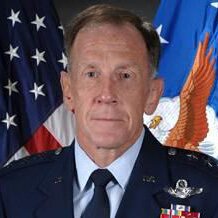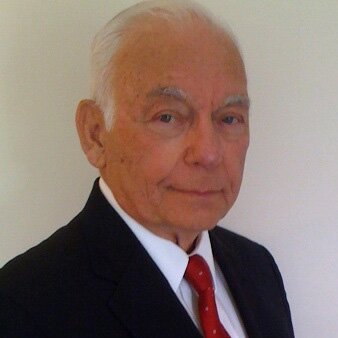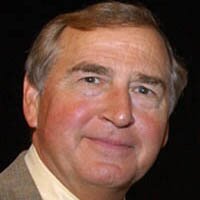By Eloise Ogden
Minot Daily News, 12/17/2010
MINOT AIR FORCE BASE – The commander of Air Force Global Strike Command, the command that oversees the Air Force’s nuclear enterprise, says the new Strategic Arms Reduction Treaty with Russia should be ratified immediately.
“I think the START Treaty ought to be ratified and it ought to be ratified right now – this week,” said Lt. Gen. Frank G. Klotz, during a visit to Minot Air Force Base this week.
The Senate began debating the New START treaty Thursday.
Klotz is considered one of the U.S. military’s most experienced and respected nuclear arms experts. As commander of Air Force Global Strike Command, with headquarters at Barksdale AFB, La., he is responsible for organizing, training, equipping and maintaining all U.S. intercontinental ballistic missile and nuclear-capable bomber forces.
Global Strike Command includes Minot Air Force Base’s 5th Bomb Wing and 91st Missile Wing.
President Obama and signed the new START Treaty in Prague in April. According to the U.S. Constitutional system, the U.S. Senate must give its consent with two-thirds vote for ratification of a treaty.
“The Secretary of Defense, the Chairman of the Joint Chiefs of Staff, the Secretary of State have all given very cogent and compelling arguments as to why this treaty ought to be ratified now all of which I wholeheartedly subscribe to,” Klotz said during an interview at Minot AFB.
He added one more to the list based on his own experience as commander of a missile wing at Minot AFB, commander of 20th Air Force and as the defense attache to Moscow for two years.
“I think it’s extraordinarily important that the two nations that posses the largest number of nuclear weapons in the world have a continuous, constant and substantive dialogue on issues related to nuclear weapons and nuclear weapons policy issues such as safety, security, command and control,” Klotz said.
Between the United States and Russia, the two countries posses 90 percent of the nuclear weapons in the world, Klotz said.
He said the past START Treaty and the one which is pending ratification serve as the nexus of that dialogue.
“Around the treaty we have inspectors come to each others bases,” Klotz said.
“We had meetings to discuss implementation of the treaty and they also give rise to other meetings and visits. For instance, when I was the commander of 20th Air Force, I hosted two different delegations of Russians,” he said. He said one was his counterpart, the commander of the Russian Strategic Rocket Forces, General Solitsov who just retired.
“That was a very, very meaningful exchange. We were in the process at the time of deactivating the Peacekeeper missile. The Russians had a number of questions about our intentions with respect to the Peacekeeper force,” Klotz said.
“Quite frankly, some of the impressions that they had were not completely accurate and we were able by virtue of discussing with them – military-to-military – dispel some of their concerns, which I think contributed in a positive way to the relationship between our two countries,” he said.
Klotz also was host to the deputy commander of the 12th GUMO, a central organization in Russia that is responsible for the security of all nuclear weapons in Russia.
“We engaged in a very meaningful exchange on how we train our security forces, how we improve the security of our facilities and convoys, which is very, very important I think, again to a mutual interest that we both have as the two largest nuclear powers in the world to make sure that these weapons are made safe and secure at all times,” he said.
“That dialogue would not have gone on if there was not the foundation and framework created by the existing START Treaty in my opinion. That dialogue has not gone on in the last few years.
“I think it’s absolutely essential that we reestablish that cooperative, collaborative relationship and the START Treaty is the core, the nexus, around which that dialogue can take place. That’s why I’m such a strong supporter and think the treaty ought to be ratified,” Klotz said.
Sen. Kent Conrad, D-N.D., Thursday urged his Senate colleagues to support the ratification of the U.S.-Russia nuclear arms treaty called New START.
In a speech on the floor on the U.S. Senate, Conrad said New START takes real steps toward reducing the number of nuclear arms in the world, while also recognizing the important role these weapons play in America’s national defense.
“Above all else, I believe this treaty is stabilizing which should be the goal of any action related to nuclear weapons,” Conrad said.
Conrad is the chair of the ICBM Coalition in the U.S. Senate and has encouraged the administration to maintain the ICBMs stationed at Minot AFB to ensure our nation’s deterrent capability.




































